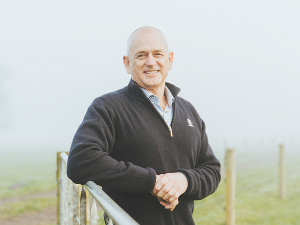Correct mineral supplementation will be crucial as wet weather and sodden soils increase the risk of cow lameness and mastitis this spring.
While NIWA’s seasonal outlook for July-September 2023 predicts near normal or below normal rainfall for the North Island, dairy farmers are advised to be proactive about managing the mineral status of their herds to maintain cow health.
This winter has seen unprecedented wet weather, and in many areas, soils are saturated, says GrainCorp Feeds technical feed partner Ken Winter.
“If this type of weather continues into the spring, it could lead to increased lameness and higher levels of mastitis.”
North Island farmers are starting spring calving, and the stage for success or mediocracy is being set by the simple choices and actions they make right now, says Winter.
“There is no instant fix for lameness, but making sure the mineral status of your herd is optimum, arming and improving the immune system, all comes from being proactive. A review done by scientists in Germany has shown that in particular, copper, zinc, selenium, and biotin are crucial in the keratinisation process, which ensures healthy hoof growth.”
It is also important to supplement cows with the correct amount of magnesium to help with the absorption and distribution of calcium. Research has shown that lame cows had significantly lower levels of magnesium in the hoof wall when compared to control cows with no lameness issues.
“A herd’s mineral status can not only help strengthen cow hooves and improve udder health, but also improve production. If you start early enough and keep their mineral status at an optimum level, you can also help avoid unnecessary losses in production and reduce health costs and animal losses.”
Winter says getting cows up to peak milk as high and as quickly as possible, while losing the least amount of body condition, is all about lifting the ceiling on potential production.
This starts with reducing cows’ negative energy balance at calving and being proactive. Getting cows to perform more efficiently can help water down costs and improve profitability.
“It’s all about the attention to detail every day and it starts now.”
Winter believes that with higher costs and the possibility of a lower payout, one of the biggest risks for dairy farmers is making poor decisions based on trying to reduce costs.
“Reducing spending in the wrong areas can ultimately cost you more in the long run,” he says.
“Having a plan with an expected outcome allows you to calculate backwards to see where and what you need to spend and in what areas you should invest to give you the best returns.”











